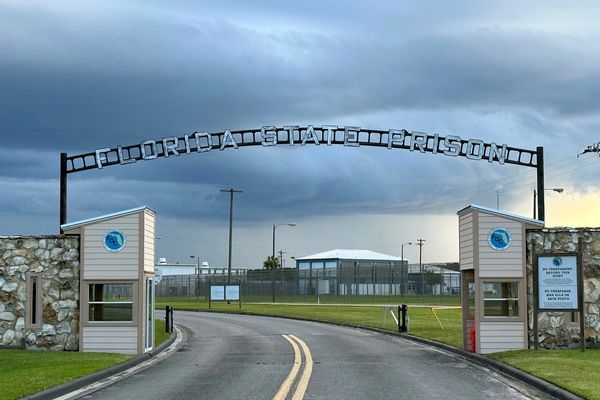
Aaron Falle was five when he landed in Australia from New Zealand. He was in his 40s when the federal government sent him back – away from his daughter, his son’s grave and the country he grew up in.
His mother had taken him with her when she moved across the ditch to marry an Australian man, who went on to adopt Falle. Citizenship papers should have arrived along with the adoption certificates, Falle says, but he never checked.
He always thought of himself as Australian. It wasn’t until he was in jail on drug trafficking charges – “weed, low-grade speed, ecstasy” – that the question of citizenship came up. It was then he was told he would be deported under section 501 of the Migration Act.
“I had a job to go to, my house, my family. I got parole the first time I applied. I was looking forward to getting out,” he says. “They picked me up from jail, put me in a detention centre, then put me on a plane.”
Falle is just one of thousands of non-citizens deported from Australia using the “character test” legislation. Many are sent “back” to countries they barely lived in, where they have no support, where they might not even speak the language.
The government boasts it has deported 10,000 people since the laws were broadened in 2014, and in 2019 proposed a bill to further “strengthen” the character test, creating a new category of “designated offences” that could drastically increase the number of people deemed to have failed the test – by a factor of five, according to one estimate.
Last month the government relisted the bill, calling it a “test for Labor” on national security. The bill passed the House of Representatives with Labor’s support, but its fate in the Senate is unknown, with just two sitting days left before the anticipated May election.
If a non-citizen committed any of the offences designated under the bill they would be deemed to have automatically failed the character test, meaning their visa could be cancelled, although discretion would remain with the immigration minister.
The offences include violence against a person, weapons offences, breaching of an apprehended violence order and non-consensual sexual acts punishable by at least two years in prison.
The view from New Zealand
New Zealanders are the most common cohort deported under section 501 – and Australia’s neighbour is not happy about it. NZ’s foreign affairs minister, Nanaia Mahuta, says her government has raised the issue with Australia “a number of times”.

“We don’t agree with the policy and would be concerned at any moves to strengthen it,” she says. “NZ accepts that Australia has the right to deport people. However, we are concerned that Australia continues to send people to NZ who have never lived here and have no family or support networks at all.”
Filipa Payne advocates for New Zealanders’ rights in Australia. She says the two countries have been interwoven over generations, but deportations are creating a rift. Those who have grown up in Australia are utterly overwhelmed when they land in NZ, she says.
“Their bodies might be here … but their minds are still concerned with their children, their wives, their parents, their friends. Everything is based in Australia.”
As more people are deported and the federal government tries to broaden the scope under which they can be deported, Payne believes NZ will be the “epicentre” for change.
“We’ll end up having boycotts, sports teams not willing to play [in Australia], a disconnnect in the Pacific because of the abuse Australia continues to inflict,” she says.
In 2020-21, 946 visas were cancelled under section 501. Drug offences were the most common reason with 197 cancellations, followed by 108 for assault and 102 for child sexual abuse offences. Other cancellations were for driving offences (28), non-violent offences (8) and theft (61).
There has been a large increase since 2013-14, when 76 visas were cancelled. At the end of 2014 the legislation was changed to make cancellation mandatory in some cases. In 2014-15, the number of cancellations rose to 579; in 2015-16 there were 986; and in 2016-17 there were 1,278.
New Zealand is easily the most common nationality represented, with 402 cancellations in 2020-21. The UK is next, with 101. In the same year, 717 of the 946 sought to have their cancellation revoked – 265 were successful.
Another deportee, Daniel, was deported almost 30 years after moving to Australia at the age of nine.
He easily concedes that he did the wrong thing: joining a gang, and later assaulting someone who planned to assault him.
But he turned his life around, he says, after he had a son – a son who is still in Australia. “I got off all drugs, alcohol, even coffee. I got off medication, I went to church, I got baptised,” he says.
“As soon as he [my son] came along, that’s what made me feel like a person.”
When Daniel got parole, he was told he was going home. “As I got to the gate, they said: ‘Nah, you’re going to the detention centre’.”
“I saw my son crying as I was taken away,” he says.
Like others, he hardly knows anyone in NZ, and he struggled with administration – his Australian bank accounts were closed, although he was paying the mortgage in Australia so his ex and his son could stay there.
“For 99 years, I can’t come back. It’s a kick in the guts,” he says. “I did my time. I realised I’d done wrong. I repented. It made me sick what I’d done.
“The money isn’t the best, I’m trying to send money over, sending everything there,” Daniel says.
“They’ve kicked me out. They don’t have to punish my family, too.”
‘Deeply troubling’
Patrick Keyzer, a human rights lawyer, says while some deportees have committed serious offences, a “very significant proportion … had not been convicted of serious crimes”. Many would be described as minor offences, he says.
“Drug offences, theft, burglary, low-level property offences … and there are cases where people have been given suspended sentences,” he says.
“[With a suspended sentence] they’ve made a risk assessment that you should be able to re-enter the community. So if a judge has made that assessment, and formed a view that a person is not a risk to Australian society, how can it be that the minister for immigration would form a view that the person would nevertheless pose a risk to Australia?”
Keyzer, the dean of law in the Australian Catholic University’s Thomas More law school, questions the expertise of the people advising the minister and the arbitrariness of the decisions. That’s “deeply troubling”, he says, considering the impact on family life.
“The deportation of a lot of these people breaks up families, removes breadwinners from the home, and often places the families – typically a mother and children – in serious economic distress.”
He says since 2014 there have been amendments to the legislation that make it “harder and harder to appeal, and easier and easier to deport”.
“A number of the people who we interviewed [for a 2016 article] talked about the Anzacs, and said we’ve served with Australians in the trenches in world wars, and we can’t understand how you could treat us like this.”

Visas can be cancelled under section 501 if “the minister reasonably suspects that the person does not pass the character test” or under section 116, which contains a host of reasons for cancellation, including if the person “is or may be, or would or might be” a risk to individuals or the community.
The “god-like” powers of section 116 were used to deport tennis player Novak Djokovic after he arrived to play in the Australian Open in January, despite failing to declare his vaccination status.
“Under s116 you can reapply [for an Australian visa] after three years,” Payne says. “[But] I don’t know anyone who’s been successful in that application, because they then cancel them under 501. It’s morally bankrupt, and it’s completely destroying families.”
Last year Payne announced a class action against the federal government. She has a team of Australian lawyers, and so far 327 people from 52 different nationalities have registered.
No second chance
Mark Glazbrook, a migration agent, says many people coming to Australia are never told they need to become a citizen to avoid the possibility of being deported, even if they have been here for 20 or 30 years.
“A situation we’ve come across quite frequently is where someone may have committed an offence, they’ve gone through the courts, they serve their time, they’re released, and then they can be kicked out of the country,” he says.
“Someone in Australia who commits the same crime goes through the same process, they rehabilitate, and they’re OK – they’ve done their time.”
Glazbrook, the chief executive officer of Adelaide-based Migration Solutions, says people – especially those who have been living here, and who have families here – deserve a second chance.
“It’s quite odd someone can live here their entire life, then be kicked out of the country just because they never applied for citizenship,” he says.
An Australian Border Force spokesperson said the ABF “plays a critical role in protecting Australia and this includes removing individuals who pose a risk to the community or who are in Australia without a valid visa”.
Those who are unwilling to depart “voluntarily” can be detained and removed, the spokesperson said.
“Individuals removed by the ABF include serious criminal offenders, individuals who have deliberately overstayed their visas or breached their visa conditions, or individuals who have been found not to have met Australia’s protection obligations.
“A non-citizen’s visa must be cancelled if they are serving, or have served a full-time term of imprisonment for an offence committed in Australia and they have, at any time, been sentenced to a period of 12 months or more imprisonment.”
“Removals” are carried out respectfully and the ABF “provides post removal support to individuals assessed on their personal circumstances”, the spokesperson said.

Falle says he had no criminal history until he lost his job after an accident and turned to drug dealing for six months.
“I’d say I can pass any character test,” he says. “I can still get into Europe, Asia, but not home to Australia. I’ve only got a speeding ticket in NZ in the five years I’ve been here.”
Somewhere in the flurry of deportation, Falle was told he could come back to Australia after a year. So, after a year and a few days, he flew into Queensland.
But the authorities put him straight back into detention, saying he had signed a revocation letter – and showing him a form that he says he had never seen before.
“They handcuffed me, put me on a plane, they dumped me back on the streets of NZ,” he says.
“And then they wanted me to pay for the ticket.”







